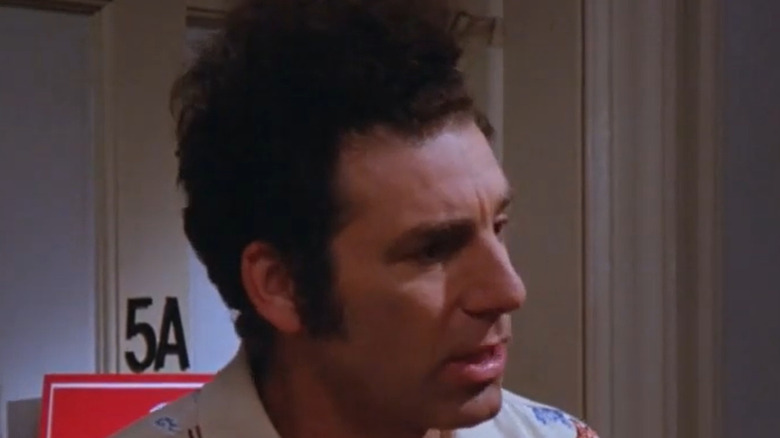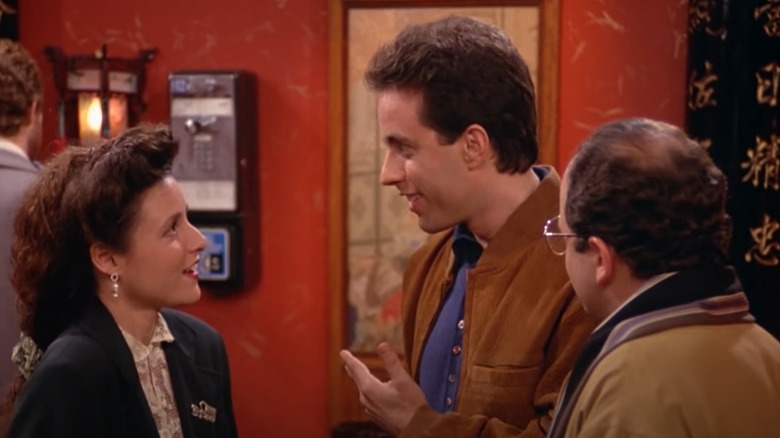The Seinfeld Episode That Almost Got The Series Canned
As a sitcom about petty behavior and obsessions, it was understandable that "Seinfeld" may have baffled audiences when it premiered on NBC in 1989. The show's "no hugging, no learning" rule of telling stories (via Wall Street Journal) must have felt strange when sitcoms like "Growing Pains" and "Family Matters" were emphasizing sweet, good-natured parents and their children, "Seinfeld" also featured unmarried, childless New Yorkers when family values were the norm on primetime television.
Jason Alexander once revealed in an interview that he wasn't even sure how to play George Costanza until he recognized that the character was based directly on the experiences of Larry David. However, the experimentation of co-creators David and Jerry Seinfeld paid off. "Seinfeld" became one of the biggest hits of the 1990s (via TV Ratings Guide) and a highly influential long-running series, as other shows like "It's Always Sunny in Philadelphia" similarly cast nasty, alienating characters as part of a sitcom ensemble.
Yet viewers were slow to catch onto "Seinfeld" during the first few seasons, and executives nearly canceled the show entirely over an early episode they couldn't imagine being appealing to anyone.
NBC executives could not understand The Chinese Restaurant
According to the New York Post, NBC had reservations about "Seinfeld" because its main characters were unpleasant and character growth was deliberately out of the question. But what nearly sank "Seinfeld" was Season 2, Episode 11, titled "The Chinese Restaurant." Set in real-time over 20+ minutes, the episode featured George, Jerry (Jerry Seinfeld), and Elaine (Julia Louis-Dreyfus) as they wait for a table, seemingly in vain, at a busy restaurant.
"The Chinese Restaurant" deliberately avoided the usual busy "Seinfeld" plot and instead emphasized the indignity of a trivial situation for the characters. Indeed, the NBC executives who most supported the show, Rick Ludwin and Jeremiah Bosgang, thought "The Chinese Restaurant" was so baffling that it would be better to cancel the show rather than have to deal with the script.
Ludwin warned Larry David about the situation, but the stubborn sitcom writer remained firm about the episode being a part of Season 2. He even threatened to quit the show over the matter. NBC caved into David's demands but insisted that "The Chinese Restaurant" air near the end of the season and not closer to the beginning of the run (via Vulture).
Yet when the episode finally aired, critics praised it heavily for its experimental tone and structure. It was only its 2nd season, but "Seinfeld" was well on the way to becoming a cultural juggernaut of the 1990s.

